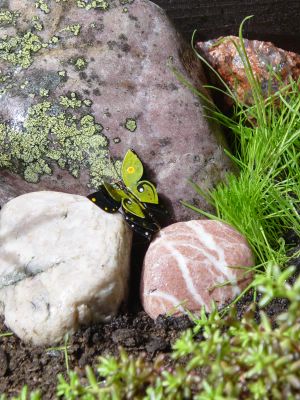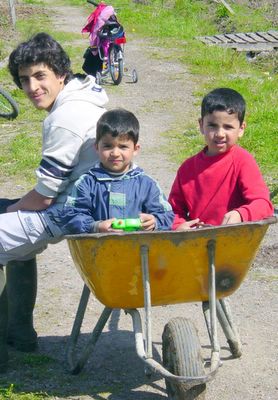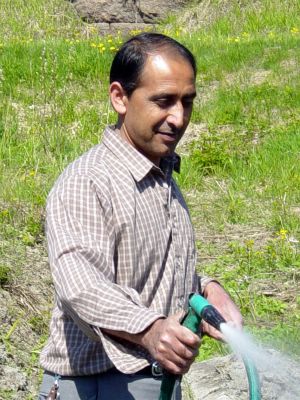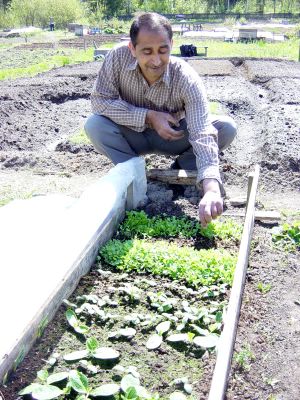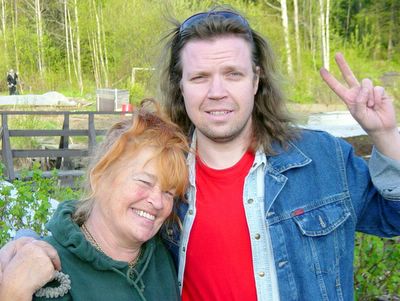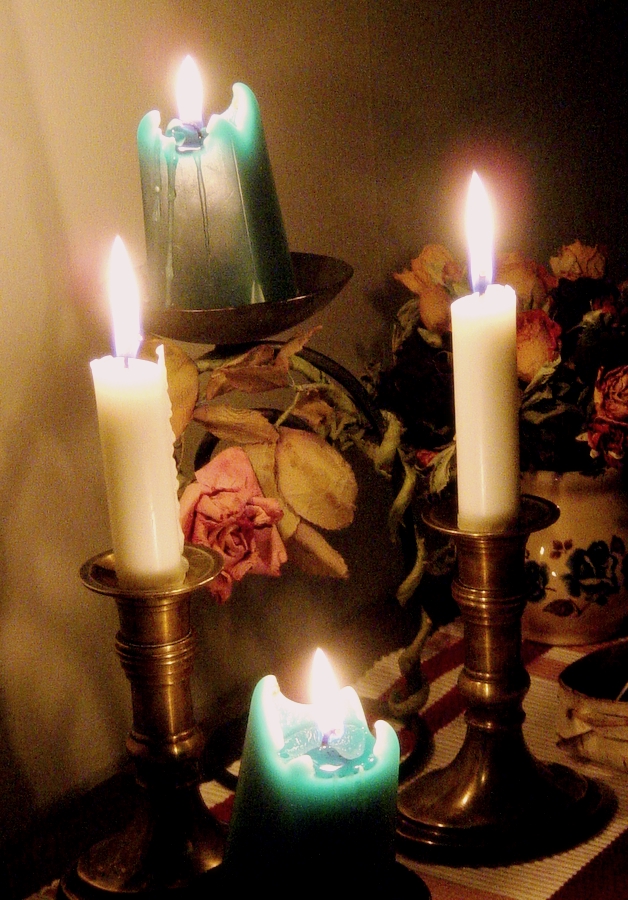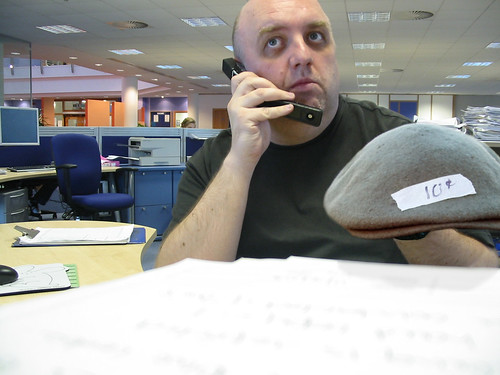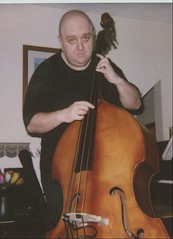
The ballad of Judas Iscariot by Robert Buchanan (1841-1901)
'Twas the body of Judas Iscariot
Lay in the Field of Blood;
'Twas the soul of Judas Iscariot
Beside the body stood.
Black was the earth by night,
And black was the sky;
Black, black were the broken clouds,
Tho' the red Moon went by.
'Twas the body of Judas Iscariot
Strangled and dead lay there;
'Twas the soul of Judas Iscariot
Look'd on it in despair.
The breath of the World came and went
Like a sick man's in rest;
Drop by drop on the World's eyes
The dews fell cool and blest.
Then the soul of Judas Iscariot
Did make a gentle moan --
'I will bury underneath the ground
My flesh and blood and bone.
'I will bury deep beneath the soil,
Lest mortals look thereon,
And when the wolf and raven come
The body will be gone!
'The stones of the field are sharp as steel,
And hard and cold, God wot;
And I must bear my body hence
Until I find a spot!'
'Twas the soul of Judas Iscariot,
So grim, and gaunt, and gray,
Raised the body of Judas Iscariot,
And carried it away.
And as he bare it from the field
Its touch was cold as ice,
And the ivory teeth within the jaw
Rattled aloud, like dice.
As the soul of Judas Iscariot
Carried its load with pain,
The Eye of Heaven, like a lanthorn's eye,
Open'd and shut again.
Half he walk'd, and half he seemed
Lifted on the cold wind;
He did not turn, for chilly hands
Were pushing from behind.
The first place that he came unto
It was the open wold,
And underneath were prickly whins,
And a wind that blew so cold.
The next place that he came unto
It was a stagnant pool,
And when he threw the body in
It floated light as wool.
He drew the body on his back,
And it was dripping chill,
And the next place be came unto
Was a Cross upon a hill.
A Cross upon the windy hill,
And a Cross on either side,
Three skeletons that swing thereon,
Who had been crucified.
And on the middle cross-bar sat
A white Dove slumbering;
Dim it sat in the dim light,
With its head beneath its wing.
And underneath the middle Cross
A grave yawn'd wide and vast,
But the soul of Judas Iscariot
Shiver'd, and glided past.
The fourth place that he came unto
It was the Brig of Dread,
And the great torrents rushing down
Were deep, and swift, and red.
He dared not fling the body in
For fear of faces dim
And arms were waved in the wild water
To thrust it back to him.
'Twas the soul of Judas Iscariot
Turned from the Brig of Dread,
And the dreadful foam of the wild water
Had splashed the body red.
For days and nights he wandered on
Upon an open plain,
And the days went by like blinding mist,
And the nights like rushing rain.
For days and nights he wandered on,
All thro' the Wood of Woe;
And the nights went by like moaning wind,
And the days like drifting snow.
'Twas the soul of Judas Iscariot
Came with a weary face --
Alone, alone, and all alone,
Alone in a lonely place!
He wandered east, he wandered west,
And heard no human sound;
For months and years, in grief and tears,
He wandered round and round,
For months and years, in grief and tears,
He walked the silent night;
Then the soul of Judas Iscariot
Perceived a far-off light.
A far-off light across the waste,
As dim as dim might be,
That came and went like the lighthouse gleam
On a black night at sea.
'Twas the soul of Judas Iscariot
Crawl'd to the distant gleam;
And the rain came down, and the rain was blown
Against him with a scream.
For days and nights he wandered on,
Push'd on by hands behind;
And the days went by like black, black rain,
And the nights like rushing wind.
'Twas the soul of Judas Iscariot,
Strange, and sad, and tall,
Stood all alone at dead of night
Before a lighted hall.
And the wold was white with snow,
And his foot-marks black and damp,
And the ghost of the silvern Moon arose,
Holding her yellow lamp.
And the icicles were on the eaves,
And the walls were deep with white,
And the shadows of the guests within
Pass'd on the window light.
The shadows of the wedding guests
Did strangely come and go,
And the body of Judas Iscariot
Lay stretch'd along the snow.
The body of Judas Iscariot
Lay stretched along the snow;
'Twas the soul of Judas Iscariot
Ran swiftly to and fro.
To and fro, and up and down,
He ran so swiftly there,
As round and round the frozen Pole
Glideth the lean white bear.
'Twas the Bridegroom sat at the table-head,
And the lights burnt bright and clear --
'Oh, who is that,' the Bridegroom said,
'Whose weary feet I hear?'
'Twas one look'd from the lighted hall,
And answered soft and slow,
'It is a wolf runs up and down
With a black track in the snow.'
The Bridegroom in his robe of white
Sat at the table-head --
'Oh, who is that who moans without?'
The blessed Bridegroom said.
'Twas one looked from the lighted hall,
And answered fierce and low,
''Tis the soul of Judas Iscariot
Gliding to and fro.'
'Twas the soul of Judas Iscariot
Did hush itself and stand,
And saw the Bridegroom at the door
With a light in his hand.
The Bridegroom stood in the open door,
And he was clad in white,
And far within the Lord's Supper
Was spread so broad and bright.
The Bridegroom shaded his eyes and look'd,
And his face was bright to see --
'What dost thou here at the Lord's Supper
With thy body's sins?' said he.
'Twas the soul of Judas Iscariot
Stood black, and sad, and bare --
'I have wandered many nights and days;
There is no light elsewhere.'
'Twas the wedding guests cried out within,
And their eyes were fierce and bright --
'Scourge the soul of Judas Iscariot
Away into the night!'
The Bridegroom stood in the open door,
And he waved hands still and slow,
And the third time that he waved his hands
The air was thick with snow.
And of every flake of falling snow,
Before it touched the ground,
There came a dove, and a thousand doves
Made sweet sound.
'Twas the body of Judas Iscariot
Floated away full fleet,
And the wings of the doves that bare it off
Were like its winding-sheet.
'Twas the Bridegroom stood at the open door,
And beckon'd, smiling sweet;
'Twas the soul of Judas Iscariot
Stole in, and fell at his feet.
'The Holy Supper is spread within,
And the many candles shine,
And I have waited long for thee
Before I poured the wine!'
The supper wine is poured at last,
The lights burn bright and fair,
Iscariot washes the Bridegroom's feet,
And dries them with his hair.
